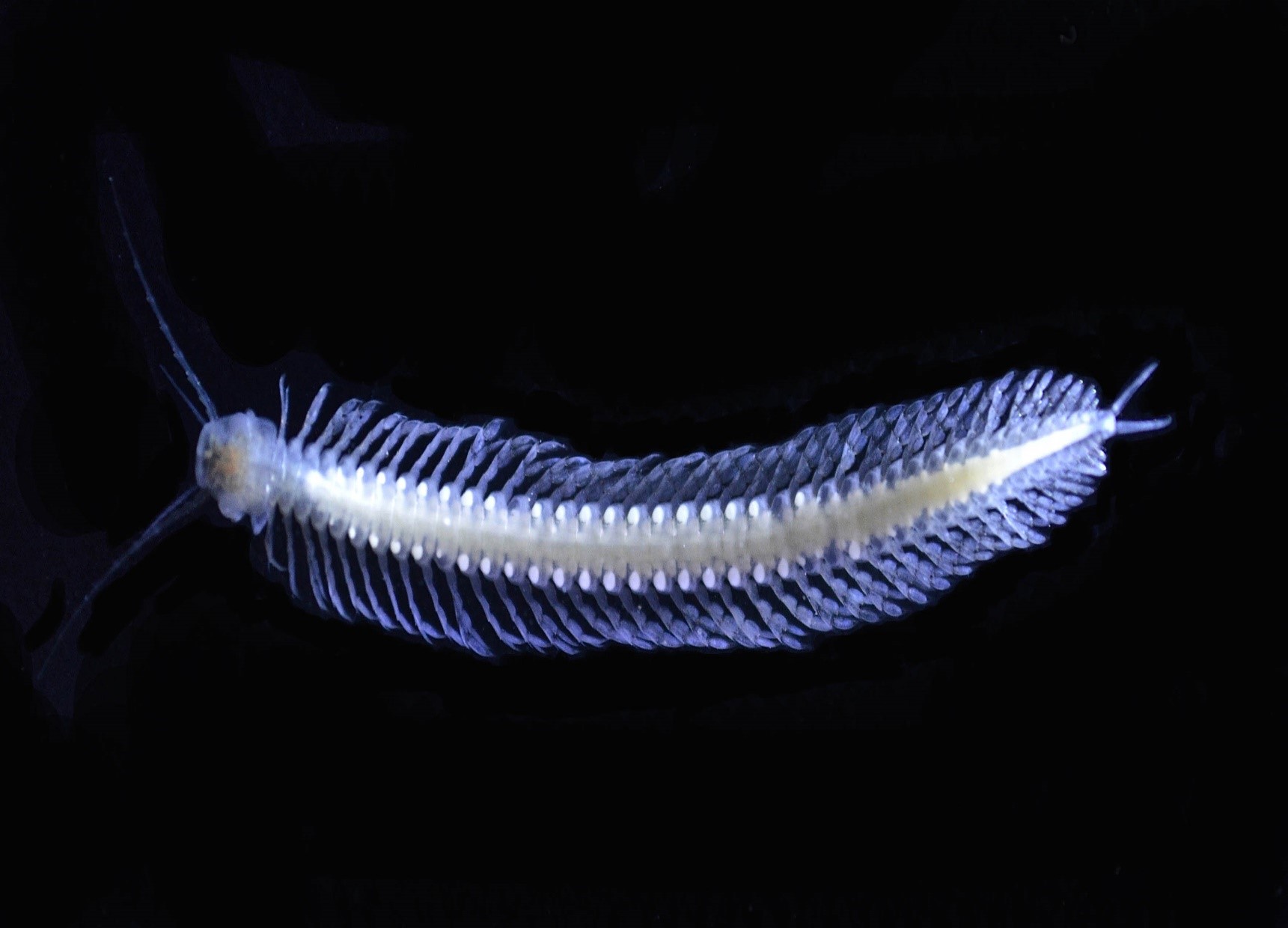Playa del Carmen, Q. R., May 01, 2021, (LA JORNADA MAYA).- The caves and cenotes of the Yucatan Peninsula are full of microorganisms that have lived there for thousands, perhaps millions of years and although we cannot see them, they are an important part of the ecological balance of the region.
Most of these species have acquired over the years characteristics that allow them to adapt to the conditions that prevail in caves and cenotes: they have lost limbs or do not have eyes, and their metabolism is very slow, which allows them to go long periods without food.
In Akumal, Quintana Roo the biologist Marco Antonio Lazcano and his team have dedicated themselves for many years to the study of the caves surrounding the Yalkú lagoon. There they have found a shrimp that they named Triacanthoneus Akumalensis, a new species of crustacean described and known only in the Anchialine cave there.

Divers have found this species mainly in the northern portion of the Muluk private reserve, in Quintana Roo where the value and importance of the reserve’s connectivity for the Yalkú lagoon are observed since they are part of the same geo-hydrological system.
Muluk is the Maya calendar symbol for water and represents flow (the movement of the tide towards the sea), the journey of a river to the collective unity of all rivers that meet in the vastness of the oceans.
The biologist Lazcano also highlighted the importance of keeping the mangrove swamp healthy, which is a place of reproduction and refuge for dozens of species; “We must not forget that these caves and cenotes flow into the sea and are part of one of the most important underground river systems in the world, which is the one we have on the peninsula, and in particular in Quintana Roo.”
Endemic species
In addition to the endemic shrimp of Tulum, there are many other species that live in this ecosystem with very particular characteristics: there are remipedios, blind eels, and “the white lady”, the latter a “ghost fish”, without eyes, very beautiful that has called the attention of the biologists and cave divers who have found it on their expeditions, highlights Roberto Rojo, director of the Sayab planetarium, in Playa del Carmen.

We also have the only stigobiont starfish in the world, which only exists in a cave in Cozumel and is called the cave star ( Copidaster cavernicola ) and the Yucatecan blind eel ( Ophisternon infernale ), which does not have eyes although apparently it is photosensitive; It measures approximately 30 centimeters and has been seen in very few cenotes.

Remipedians ( Xibalbanus tulumensis ) are hermaphrodites considered living fossils. Its name alludes to the use of its legs as paddles. There is the cenote shrimp ( Typhlatya pearsei ), blind snail ( Mexicenotica xochii ), the greater and lesser stygiomísids ( Stygiomysis cokei and Stygiomysis holthuisi ), the blind mealybug or cenote mealybug ( Creaseriella anops ), among many other species.
For Rojo, “the fact that we do not see them does not mean that they are not important”, these animals, mostly between two and five centimeters, are part of a chain that sustains life abroad. For example, he noted, a bat that goes out to eat returns to its cave and scatters food debris inside that serve as food for these much smaller species.
He recalled that there are dry and flooded caves, each with its own inhabitants. These species can live under rocks, on rocks, in sediment or in water, depending on the type of cave or cenote they inhabit. Their diet includes microalgae, bacteria, algae, phytoplankton, organic surface material, guano from bats and birds, dead animals and crustaceans.
There are, at least 800 species of animals in the subsoil, inhabiting a whole chain of caves, cenotes and underground rivers and we must be aware that everything we do on the surface, good and bad, affects their lives. He pointed out.

Importance for the aquifer
According to the Guide for the Identification of the Underground Fauna of the Cenotes in the Yucatan Peninsula, authored by Dorottya Flóra Angyal, Efraín Chávez Solís, Luis Liévano Beltrán and Nuno Simões, the “stigobiontes” species (the name comes from Stýx , Greek river of the underworld and bios, life) are those that inhabit subterranean aquatic environments, such as the flooded caves of the Yucatan Peninsula.
“The vast majority of stigobionts are endemic, some even microendemic (exclusively from a single cave), and currently 15 percent of the inhabitants of the Yucatan Peninsula are at risk of extinction,” according to the document.
Stigobionts have adaptations called troglomorphisms, which are characteristics shared by organisms that have evolved to life in subterranean environments, and which distinguish them from other surface species. Morphological modifications are the most obvious. Some examples are the loss or reduction of eyes, elongation of limbs and depigmentation. However, they also present physiological adaptations that influence their ecology and allow them to carry out their life cycles in total darkness.
This fauna, the authors assure, provides ecosystem services such as bioturbation, which consists of the recycling of accumulated organic matter, the elimination of pathogens and the removal of pollutants in the sediment. Therefore, it is a fundamental component for the maintenance and proper functioning of the aquifer.
Source: LA JORNADA MAYA



